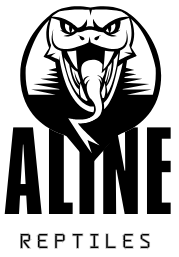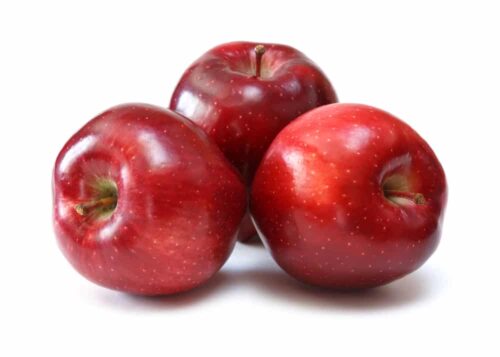You’re enjoying a delicious, crunchy apple and your curious bearded dragon stares at you, its little eyes following the juicy fruit with interest. It’s only natural to wonder, “Can my bearded dragon eat apples too?” After all, apples are not only a sweet and nutritious snack for us but also a staple in many human diets. But does that mean they’re safe for your pet lizard?
As a bearded dragon owner, it’s essential to understand the nutritional needs of your scaly companion. These reptiles are known for their quirky personalities and are often treated like family members. You likely want to ensure that every piece of food you give them is healthy and beneficial for their growth, energy, and overall well-being.
The truth is, while apples can be a delicious treat for your bearded dragon, they come with their own set of considerations. In this article, we’ll dive deep into the question: Can bearded dragons eat apples? You’ll get all the answers you need, from the potential benefits to the risks involved, and most importantly, how to safely add apples to your bearded dragon’s diet.
Can Bearded Dragons Eat Apples?

The simple answer is yes, bearded dragons can eat apples, but only under specific conditions. While apples themselves aren’t toxic to these reptiles, they should be introduced into their diet with care and moderation. Apples are a healthy fruit, packed with essential vitamins and minerals, but they also come with some risks when overfed or improperly prepared.
In the wild, bearded dragons are omnivores, meaning they eat both plants and small animals. However, their diet in captivity requires a balance of protein, fiber, vitamins, and minerals. Apples can be a fun and tasty treat but should not form the bulk of their daily food intake.
Nutritional Benefits of Apples for Bearded Dragons
Apples are not just delicious – they’re packed with nutrients that can benefit your bearded dragon when given correctly. Let’s break down the key benefits:
- Vitamin A: Apples contain a good amount of vitamin A, which plays a crucial role in maintaining healthy vision, skin, and overall cellular function. Vitamin A also supports the immune system, making your bearded dragon more resilient to infections.
- Vitamin C: This vitamin is essential for overall health, particularly for the immune system. Although bearded dragons do produce vitamin C naturally, consuming fruits like apples can give them an extra boost to help prevent illnesses.
- Fiber: Apples are rich in fiber, which aids in digestion. For bearded dragons, fiber helps promote a healthy digestive system, reducing the risk of issues like constipation or impaction.
- Antioxidants: Apples contain antioxidants, such as flavonoids, that help neutralize free radicals in the body. This contributes to a healthy immune system and reduces the risk of chronic diseases.
While apples do provide these benefits, it’s important to remember that not all fruits are created equal in terms of nutritional content for bearded dragons. A varied diet, including other fruits, vegetables, and appropriate protein sources, is essential to their health.
Risks of Feeding Apples to Bearded Dragons
While apples have plenty of health benefits, there are several risks to be aware of before feeding them to your bearded dragon. These risks stem mainly from their sugar content, how the apple is prepared, and how frequently it is offered.
- High Sugar Content: Apples are naturally high in sugar. Bearded dragons, like many reptiles, can struggle to digest too much sugar in their diet. Feeding them apples too frequently could lead to obesity, which in turn can cause other health issues like fatty liver disease and joint problems.It’s essential to keep apples as an occasional treat rather than a regular part of their meals.
- Risk of Obesity: Bearded dragons are prone to obesity if overfed high-sugar fruits. Obesity can lead to a range of health problems, including heart disease, reduced mobility, and shorter lifespans. Therefore, it’s critical to limit the number of apples you give your dragon and balance it with other healthy foods.
- Choking Hazard: Apples, especially if not sliced or diced properly, can pose a choking risk. Bearded dragons have small throats and delicate digestive tracts. Always cut apples into small, manageable pieces to avoid any accidents. Large apple slices could also cause impaction, especially if the bearded dragon swallows them whole.
- Pesticide Contamination: Commercial apples often contain pesticide residues, which could harm your bearded dragon. It’s crucial to wash apples thoroughly before serving them, or better yet, opt for organic apples to reduce the risk of exposure to harmful chemicals.
- High Water Content: While not as significant as the risks above, apples have a high water content. Too much water can sometimes cause diarrhea or disrupt the digestive system, particularly in juvenile bearded dragons.
How to Safely Feed Apples to Bearded Dragons

To safely incorporate apples into your bearded dragon’s diet, you need to prepare them properly and follow a few guidelines to ensure they’re getting the most out of this occasional treat.
- Preparation: Always wash apples thoroughly to remove any pesticides or dirt. If you’re using conventional apples, peeling them is a good idea, as the skin can sometimes be tough to digest. After washing, cut the apple into small, bite-sized pieces that are easy for your bearded dragon to chew and swallow.
- Moderation: Apples should only be offered as an occasional treat. A small piece once a week is sufficient to provide your dragon with the benefits of the fruit without overloading their system with sugar. Too much of any fruit can throw off the balance of their diet.
- Serving Size: For an adult bearded dragon, aim for a piece of apple that is no larger than the size of their head. Juvenile bearded dragons should be given even smaller portions to avoid choking and to ensure they’re getting enough nutrients from other foods.
- Combine with Other Fruits and Veggies: Apples shouldn’t be the only fruit you offer. For a more well-rounded diet, combine apples with other dragon-friendly fruits like strawberries, blueberries, and melons. Don’t forget to offer a variety of vegetables, such as collard greens, dandelion greens, and butternut squash, to ensure they receive the full range of nutrients they need.
Other Fruits Bearded Dragons Can Eat
In addition to apples, there are several other fruits that are safe and beneficial for bearded dragons in moderation. Here’s a list of some dragon-approved fruits:
- Strawberries: High in vitamin C and low in sugar, making them a great option for your bearded dragon.
- Blueberries: Rich in antioxidants, they help protect against free radical damage.
- Pears: Similar to apples but lower in sugar. Pears can be given as a treat occasionally.
- Peaches and Plums: Rich in vitamins and fiber, these fruits can add variety to your pet’s diet.
- Watermelon: A hydrating, low-calorie treat perfect for hot days.
While fruit is a fun treat, it should only make up about 10-15% of your bearded dragon’s diet. The majority of their food should consist of leafy greens, vegetables, and insects (for adult dragons), ensuring they get the protein and other nutrients they need.
Signs of Overfeeding or Negative Reactions
While apples are a healthy treat in moderation, overfeeding can lead to issues. Here’s what to watch out for:
- Diarrhea: Too much fruit, especially apples, can upset your bearded dragon’s digestive system, leading to diarrhea.
- Lethargy: If your dragon eats too many sugary fruits, it might become lethargic or lose its appetite for more nutritious food.
- Obesity: As previously mentioned, feeding apples too frequently can contribute to obesity, especially in older dragons. Make sure your dragon maintains a healthy weight by offering balanced meals and limiting fruit intake.
If you notice any of these symptoms, it’s essential to adjust your dragon’s diet and monitor their behavior. If the symptoms persist, consult with your reptile vet for further advice.
Conclusion
Can bearded dragons eat apples? Bearded dragons can enjoy apples, but they should be treated as an occasional snack rather than a regular meal. Apples provide essential nutrients like vitamin A, vitamin C, and fiber, but they also come with risks if overfed or improperly prepared.
By following the tips outlined in this article, you can safely offer apples to your bearded dragon as a tasty treat without compromising their health. Remember, a balanced diet consisting of leafy greens, vegetables, and occasional fruits like apples will ensure your bearded dragon remains happy and healthy for years to come.

